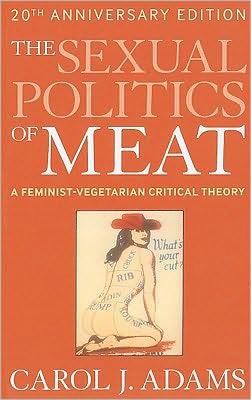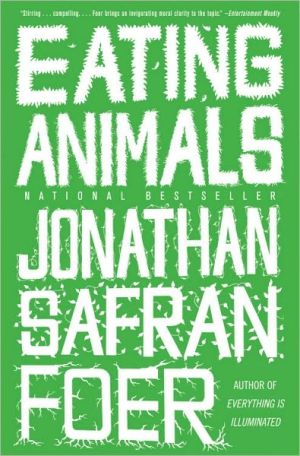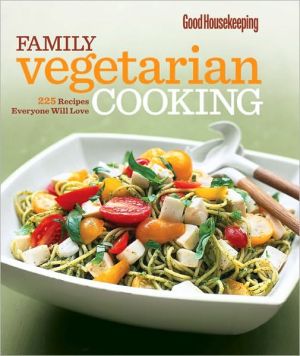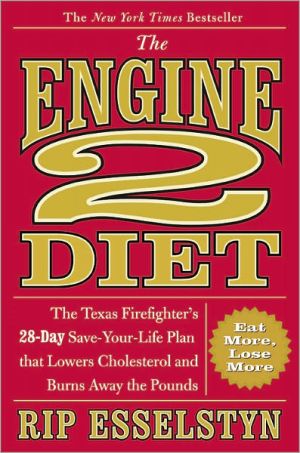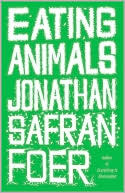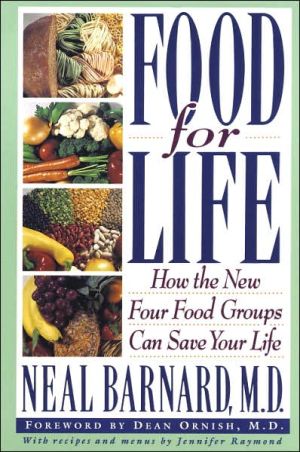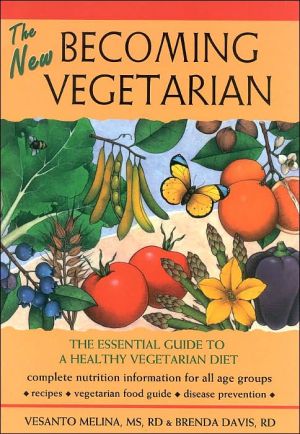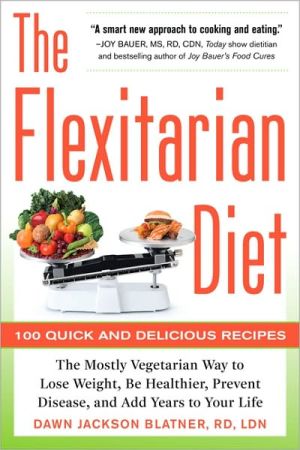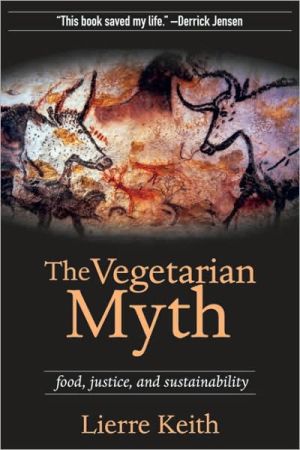The Sexual Politics of Meat: A Feminist-Vegetarian Critical Theory
20th Anniversary Edition includes a new preface by the author, a foreword by Nellie McKay, and eight pages of recent examples that illustrate Adams' argument.\ \ \ In just over a year, the book with the strange title--and even strager ideas, some would say--has become the classic articulation of the hidden connections between meat eating and patriarchy, between vegetarianism and feminism. Now in paperback and widely available to readers everywhere, The Sexual...
Search in google:
20th Anniversary Edition includes a new preface by the author, a foreword by Nellie McKay, and eight pages of recent examples that illustrate Adams' argument. Publishers Weekly Many cultures equate meat-eating with virility, and in some societies women offer men the ``best'' (i.e., bloodiest) food at the expense of their own nutritional needs. Building upon these observations, feminist activist Adams detects intimate links between the slaughter of animals and violence directed against women. She ties the prevalence of a carnivorous diet to patriarchal attitudes, such as the idea that the end justifies the means, and the objectification of others. In Frankenstein , Mary Shelley made her Creature a vegetarian, a point Adams relates to the Romantics' radical politics and to visionary novels by Charlotte Perkins Gilman, Dorothy Bryant and others. Adams, who teaches at Perkins School of Theology, Dallas, sketches the alliance of vegetarianism and feminism in antivivisection activism, the suffrage movement and 20th-century pacifism. Her original, provocative book makes a major contribution to the debate on animal rights. (Jan.)
List of IllustrationsPreface to the 20th Anniversary EditionAcknowledgmentsForeword by ... (to come)Part 1 The Patriarchal Texts of Meat1 The Sexual Politics of Meat2 The Rape of Animals, the Butchering of Women3 Masked Violence, Muted Voices4 The Word Made FleshPart 2 From the Belly of Zeus5 Dismembered Texts, Dismembered Animals6 Frankenstein's Vegetarian Monster7 Feminism, the Great War, and Modern VegetarianismPart 3 Eat Rice Have Faith in Women8 The Distortion of the Vegetarian Body9 For a Feminist-Vegetarian Critical TheoryEpilogue: Destabilizing Patriarchal ConsumptionNotesSelect BibliographyIndex
\ Publishers Weekly - Publisher's Weekly\ Many cultures equate meat-eating with virility, and in some societies women offer men the ``best'' (i.e., bloodiest) food at the expense of their own nutritional needs. Building upon these observations, feminist activist Adams detects intimate links between the slaughter of animals and violence directed against women. She ties the prevalence of a carnivorous diet to patriarchal attitudes, such as the idea that the end justifies the means, and the objectification of others. In Frankenstein , Mary Shelley made her Creature a vegetarian, a point Adams relates to the Romantics' radical politics and to visionary novels by Charlotte Perkins Gilman, Dorothy Bryant and others. Adams, who teaches at Perkins School of Theology, Dallas, sketches the alliance of vegetarianism and feminism in antivivisection activism, the suffrage movement and 20th-century pacifism. Her original, provocative book makes a major contribution to the debate on animal rights. (Jan.)\ \ \ \ \ Library JournalWriter/activist/university lecturer Adams's important and provocative work compares myths about meat-eating with myths about manliness; and explores the literary, scientific, and social connections between meat-eating, male dominance, and war. Drawing on such diverse sources as butchering texts, cookbooks, Victorian ``hygiene'' manuals, and Alice Walker, the author provides a compelling case for inextricably linking feminist and vegetarian theory. This book is likely to both inspire and enrage readers across the political spectrum: we learn, for example, that veal was served at Gloria Steinem's 50th birthday, as well as of the atrocities of the slaughterhouse. One wishes Adams had been more careful about documenting some of her claims--her contention, for instance, that early humans were entirely vegetarian, requires scholarly support. Nevertheless this is recommended for both public and academic collections.-- Beverly Miller, Boise State Univ. Lib., Id.\ \ \ BooknewsThis tenth anniversary edition of a book that might seem like some strange side-dish next to the more meaty entrees concerned with race, class, gender, and sexuality is a testament to the book's importance, one based on establishing connections between eating and being. Ms. Adams views eating as more than pleasure, business, and nutrition, seeing it intermixed in a succotash of linguistic, cultural, and political practices connected to man/woman and human/animal relations. Read this book to find out about the "absent referent," usually an animal absented by being linguistically appropriated to dramatize the speaker's experience ("He treated me like a piece of meat,"), the ancient but "absented" vegetarian themes in literature, and the absented vegetarian canon<-->great works by great writers on vegetarianism passed over by otherwise omnivorous instructors. Even after 10 years and a fresh-in-the-trenches breed of anarchovegans fighting the good fight, Adams still has vital things to say to those thinking about slaughtered flesh. The tenth edition contains a new preface and an updated bibliography. Annotation c. Book News, Inc., Portland, OR (booknews.com)\ \
